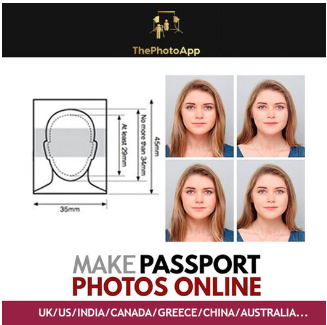With the latest choice by the American Supreme Court to overturn Roe v. Wade, it’s doubtless kids will overhear the phrase “abortion” in some unspecified time in the future and ask what it means. Whether it’s on the information, TV, radio or overhearing discussions by adults of their sphere, kids are sometimes fascinated by something they sense provokes robust feelings. And whereas the thought of a kid asking about abortion might make some cringe, scientific proof has confirmed that factual and sincere sexual education is vital to wholesome bodily, psychological and emotional improvement in kids. Answering kids’ sexuality and copy questions with age-appropriate, non-judgemental, correct solutions is a crucial manner to construct security, belief and reference to them.
Discuss the fundamentals of physique elements, copy and consent
The Ontario authorities states kids as younger as two years previous are prepared to talk about easy subjects like appropriate names for physique elements. Frédérique Chabot, Director of Health Promotion at Ottawa-based Action Canada for Sexual Health and Rights, cautions that discussing abortion can’t be a standalone dialog; it requires prep work in prior discussions that construct a basis of a kid’s understanding and autonomy of their very own our bodies, private choice-based consent, and copy.
“Consent in particular helps kids apply those understandings to abortion. We get to decide what feels comfortable for our own bodies and what we say yes or no to,” defined Chabot. “For kids, we teach and model for them being able to say no if they don’t want hugs or kisses or other unwanted touch. When they get older, kids will then be able to understand that a person has to also consent to a pregnancy in their body.”
Early discussions about consent don’t have to contain intercourse or sexuality; specialists have acknowledged toddlers are able to studying to say no to interactions with their physique (like tickling) and parents ought to encourage and respect that. You may also inform a baby that you’re going to change their diaper now, otherwise you need to give them a shower, so a baby feels they’re accountable for their very own physique by being saved well-informed about what is going on to it.
“We want to teach kids the information they need to make smart decisions they feel good about and keep them safe,” echoes Saleema Noon, a sexual well being educator from Vancouver who works with kids. “We teach the ‘3-Ps’: protection, prevention, and preparation. We teach proper body part names, what body parts do, how to take care of them. We want them to know their body is theirs and how to take responsibility for that.”
So how do these conversations lend themselves to discussions about abortion? When a baby has an understanding of physique elements and capabilities, they’re higher geared up to know the way being pregnant happens. Chabot and Noon additionally suggest discussing being pregnant in child-appropriate scientific phrases: ‘a sperm and egg come together in a uterus to make a pregnancy’ is a straightforward reply to begin with. Chabon suggests utilizing the time period “baby” for full-term pregnancies after the fetus has left the uterus. Of course, most kids can have follow-up questions, and that’s fully regular.
Toronto little one psychologist Carly Shecter says there isn’t a proper or mistaken age to have these discussions. “It’s not a calendar age thing; a child’s developmental age is most important. Parents must consider what place a child is at in their understanding. There’s no one-size-fits-all script or response based on numeric age groups.” Action Canada has some nice suggestions for parents on how to begin and proceed ongoing schooling fairly than having “the talk” about “the birds and the bees” that was widespread in older generations. The group suggests issues like parents having information base themselves with steady self-education in preparation for kids’ questions, and avoiding cutesy names of physique elements and their capabilities, and not sharing myths about sexuality (no, fingers gained’t fall off from masturbation.)
Shecter additionally helps discussions with child-appropriate language, utilizing appropriate physique half names and doing a little role-playing when it comes to instructing and practising consent. She burdened the significance of making a trusting relationship by being sincere in answering questions kids have and not shaming them for citing these questions. It’s OK if a dad or mum tells a baby they want a little bit of time to analysis and formulate the reply they’re most comfy with, so long as they fulfill their dedication to return to the dialog.
Answering these robust questions about abortion
When one of many questions inevitably finally ends up being, “What is abortion?” Chabot, Noon and Shecter all agree {that a} easy response first is greatest, alongside the strains of, “Abortion is stopping a pregnancy from continuing.” All three additionally strongly suggest offering correct and unbiased info, with extra discussions woven in about the values of their very own and different households. You may want time to cope with your individual feelings first earlier than you’ll be able to have a transparent dialog.
Noon additionally advised turning the query round and asking the kid what they know about what they’ve requested so parents have a benchmark of the place to start the dialog or what they want to appropriate. Here are some advised responses:
What is abortion?
The easy reply is ‘when a person is pregnant and stops the pregnancy from continuing.’ A extra detailed response for older or extra developmentally mature kids can embody ‘when a healthcare provider gives a person medicine or does a medical procedure to stop a pregnancy.’
Why do folks get abortions?
This may be tough, as youthful kids love asking why, but aren’t at all times geared up to perceive the complete socioeconomic or emotional causes behind searching for an abortion. Shecter stresses that parents know their kids greatest and to reply questions in methods they really feel their little one can totally perceive. Noon suggests asking, ‘Why do you think somebody would not want to continue being pregnant?’ and develop the dialog based mostly on what the kid shares.
For older kids, it’s good to state the explanations at a excessive stage, akin to, ‘People may not feel emotionally or financially ready to be pregnant or become a parent, they may have gotten pregnant by accident or against their wishes, they may have a medical concern that makes pregnancy unsafe or the fetus may have severe medical problems.’
Why are so many individuals speaking about abortion proper now?
Young kids won’t perceive the authorized and human rights points round abortion, so parents can merely say, ‘Many people have big feelings about abortion and sometimes stories in the news bring out those big feelings so people talk about it.’ For older kids, it’s tremendous to inform them what’s taking place within the USA in unbiased language and tone.
For most adults, it’s laborious to talk about abortion with out inserting private beliefs and feelings. Noon says go forward and share together with your little one what your loved ones values are, in addition to easy, factual info about abortion. It can be likelihood to talk about secure intercourse, if a baby is attentive sufficient for an expanded dialogue.
Sometimes youthful kids merely need a brief, easy reply and will return later with follow-up questions after they’ve mulled over what they’ve been instructed. The key right here is to create a secure area the place kids really feel validated, their issues are addressed, and their questions are answered in a non-judgemental manner; that’s additionally an open door for different associated sexuality conversations. Media and interactions with mates and household might present alternatives to talk about sexuality as nicely, like someone asserting a needed being pregnant, or a TV present the place there may be hugging or kissing with out demonstrated consent.
Chabot hopes that private opinions on abortion by no means stop parents from neutrally discussing the info with kids after they ask. “Sexuality education is about keeping kids safe. One out of three people who can get pregnant in Canada has had an abortion and it’s something that’s been practiced throughout history. Withholding proper information leaves kids scared, misinformed, and misses the opportunity to discuss family values and how to uphold them (like discussions about abstinence or effective birth control) instead of using guilt and fear.” Noon additionally made the superb level that making a welcoming surroundings to talk about sexuality with kids permits parents to appropriate kids’ misconceptions they could have gotten from others.
Keep the dialog going
Sex-positive parenting is an ongoing a part of communication with kids, whether or not the kids include questions or feedback, or the parents initiate the discussion. It’s vital to maintain issues conversational and non-judgemental, even when parents didn’t obtain that type of intercourse schooling rising up. Kids want security and understanding from parents or they’ll merely go to different sources to get info they need. It’s OK to admit to feeling uncomfortable and to inform kids these subjects weren’t overtly and actually mentioned in earlier generations, however make sure that additionally they know they’ll ask something and gained’t get in bother or instructed not to ask such issues.
Sexuality is part of life and parents can’t stop that by pretending it doesn’t exist. In countries like the Netherlands, the place sexual schooling begins at age 4 and is broad, inclusive and discusses each facet of sexuality, research have proven that kids there are those who reap essentially the most profit like decrease teen being pregnant charges and decrease charges of STI. Regardless of private opinions on abortion, parents all need security, wellness and a mutually trusting relationship with their kids. The instruments for constructing that relationship are easy: being open and honest with correct info.
Parent useful resource centre
Looking for added help? Check out:
Books:
Talk Sex Today: What Kids Need to Know and How Adults Can Teach Them
Sex is a Funny Word: A Book About Bodies, Feelings, And You
What’s An Abortion Anyway? (Currently solely accessible within the USA, however a e-newsletter signup is accessible.)
Videos:
What is an Abortion? – An American-based video for older kids that features dialogue of the authorized features of abortion within the USA
Nadine Thornhill, Sexuality Educator – a YouTube Channel with movies on sexuality subjects, notably the #SaveSexEd sequence, which teaches the Ontario intercourse ed curriculum throughout all ages.
Websites:
Action Canada for Sexual Health & Rights – a Resources web page filled with reviews, factsheets, useful instruments and extra.
Saleema Noon, Sexuality Educators – Workshops and Resources accessible to help parents with sexuality schooling, together with a Sexual Health Education Checklist by age group



